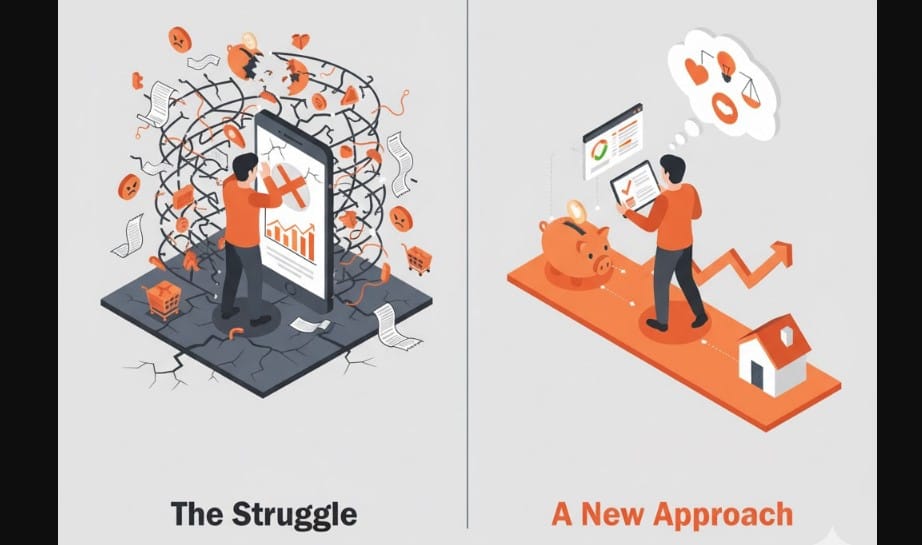You set a budget, plan your spending, and promise yourself that this month will be different — yet by the end of the month, you’re off track again.
The truth is, struggling to stick to a budget isn’t a moral failing — it’s often psychological and systemic.
Understanding why traditional budgeting fails can help you create strategies that actually work with your behavior — not against it.
1. Budgets Are Often Too Rigid
One common problem: budgets are mechanical and inflexible.
- Allocating exact amounts to every category can feel like a straitjacket
- Small deviations lead to guilt, causing people to abandon the plan entirely
- Life is unpredictable — emergencies, spontaneous opportunities, and mood-driven spending happen
Solution: Build a flexible budget that accounts for irregular expenses and allows for controlled spontaneity.
2. Emotional Spending Overrides Logic
Money isn’t purely rational — our emotions influence almost every financial decision:
- Buying to cope with stress or boredom
- Rewarding yourself after a hard day
- Overspending to feel status or self-worth
Even the best budget can’t account for unacknowledged emotional triggers. Recognizing these triggers is the first step toward a realistic, human-friendly budget.
3. Scarcity Mindset Sabotages Discipline
When people feel there’s never enough, budgeting can feel punitive.
- “I can’t spend anything on myself until I save more.”
- “I’ll never get ahead, so why bother?”
This scarcity thinking creates resistance and leads to overspending or avoidance.
Solution: Shift to an abundance mindset: focus on incremental progress, not perfection.
4. Poor Habit Formation
Sticking to a budget requires forming new habits, not just following rules:
- Tracking expenses daily
- Reviewing budgets weekly
- Automating savings and bills
Without consistent habit reinforcement, even the best budget plans fail. Small, repeated behaviors are more important than rigid spreadsheets.
5. Ignoring Psychological Needs
Budgets often neglect the human side of money:
- Mental freedom: a small “fun fund” can prevent rebellion against restrictions
- Emotional reward: celebrating milestones reinforces positive financial behavior
- Alignment with values: money spent on what matters most creates satisfaction, not guilt
A budget that ignores psychology is doomed to fail.
6. The “All-or-Nothing” Trap
Many people abandon budgets because of minor slips:
- Overspending by $20 → “I’ve ruined the month”
- Missed savings → “I’ll start over next month”
Budgeting works best with grace and adaptability. Allow room for mistakes and small course corrections — perfection is the enemy of progress.
7. How to Create a Budget That Sticks
- Start small — focus on one or two categories first
- Automate savings and bills — reduce decision fatigue
- Track emotions alongside spending — understand triggers
- Build in flexibility — include discretionary spending for fun
- Review and adjust weekly — budgets are living documents
- Celebrate progress — even minor wins reinforce consistency
The goal is behavioral alignment, not spreadsheet perfection.
Conclusion
Sticking to a budget isn’t about willpower — it’s about designing a system that works with your human tendencies, emotional triggers, and lifestyle.
By understanding why budgets fail and adjusting your approach, you can finally take control of your money without guilt, shame, or frustration.
Budgeting isn’t about restriction — it’s about empowering financial freedom.


